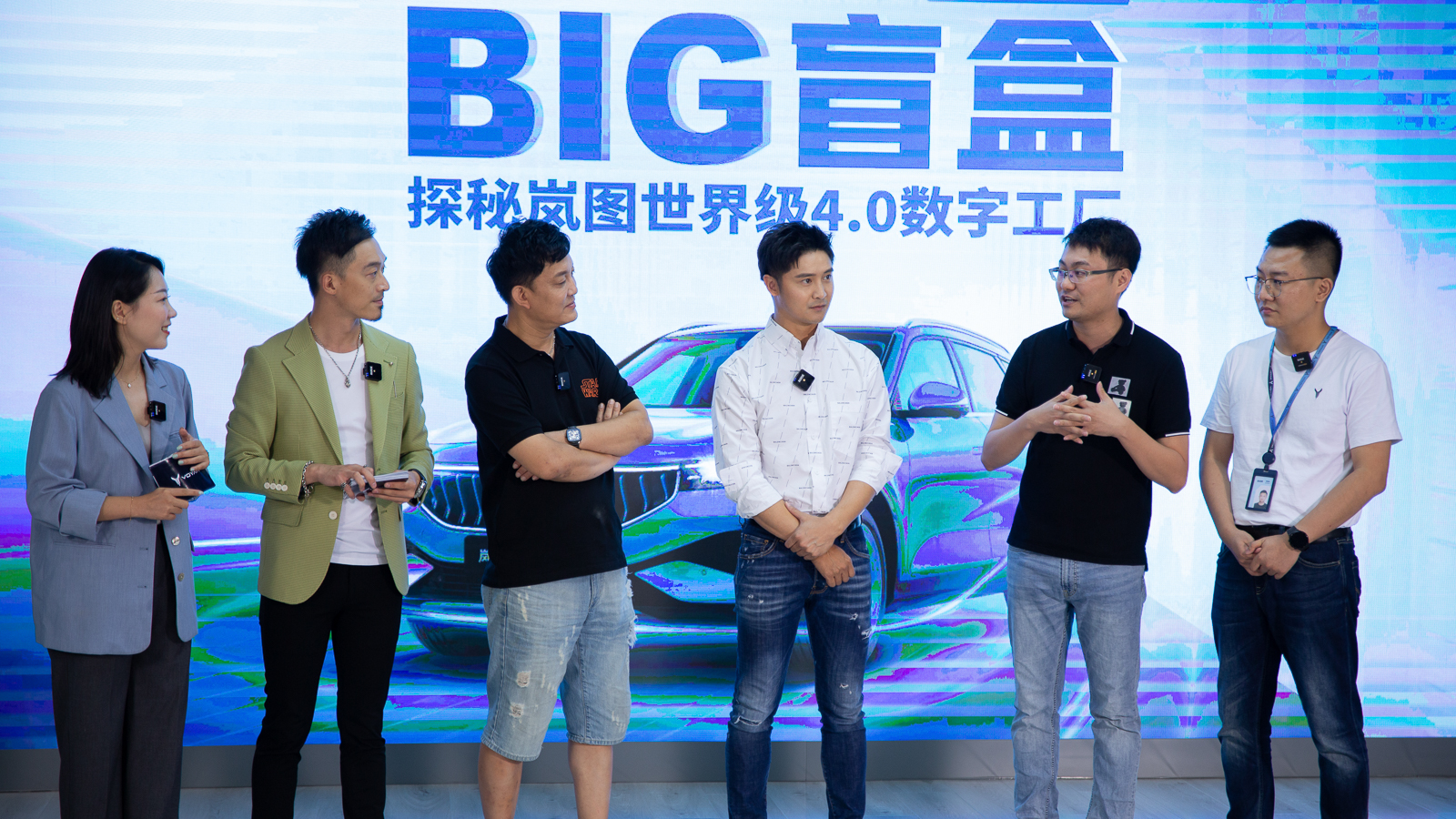On the evening of August 27th, LanTu unveiled their “Largest Blind Box” online, taking us on a tour of their world-class 4.0 digital factory located in Wuhan, showcasing the factory’s construction and details.
In this event, LanTu brought four different manufacturing processes– stamping, welding, painting, and assembly– as well as demonstrating various “black technologies” used in factory manufacturing.
Industrial 4.0 is a manufacturing industry mainly driven by intelligent manufacturing. The factory integrates production equipment, wireless signal connection, and sensors into an ecosystem platform that monitors the entire production line process and executes decisions independently. In Industry 4.0, equipment is interconnected and intelligent, which not only reduces the repetitive pressure on workers in production but also increases product yield and production efficiency.
So where is the intelligence in LanTu’s factory? Let’s take a look at these four workshops.
First, the stamping workshop. LanTu’s stamping workshop has a high-speed synchronous stamping line with steel-aluminum hybrid production capabilities that produces one piece in 7 seconds. Its stretch system uses the world’s top CNC hydraulic cushion technology, which is more conducive to part molding and can control the error of different processes within 0.1 mm. Stamping is the process of stamping parts such as door panels and engine covers, which turns each component from “the most primitive steel-aluminum to the initial shape.”Secondly, the welding workshop. Perhaps the previous workshop just showed off its muscle with some hard skills, but this workshop has become “intelligent”. The welding workshop has over 400 Fanuc robots and lightweight bodywork technologies such as laser welding. All vehicle welding is completed automatically by robots with a welding automation rate of 99\%. A single production line can support the welding needs of 6 different vehicle models. At the same time, the lovely “delivery boy” AGV vehicle is equipped with China Unicom’s 5G signal, which can more accurately confirm the items to be transported and the destination. The welding workshop is where we connect the previously manufactured parts one by one. Whether each different part can be accurately and efficiently welded into a complete entity is a test of the welding workshop’s techniques.
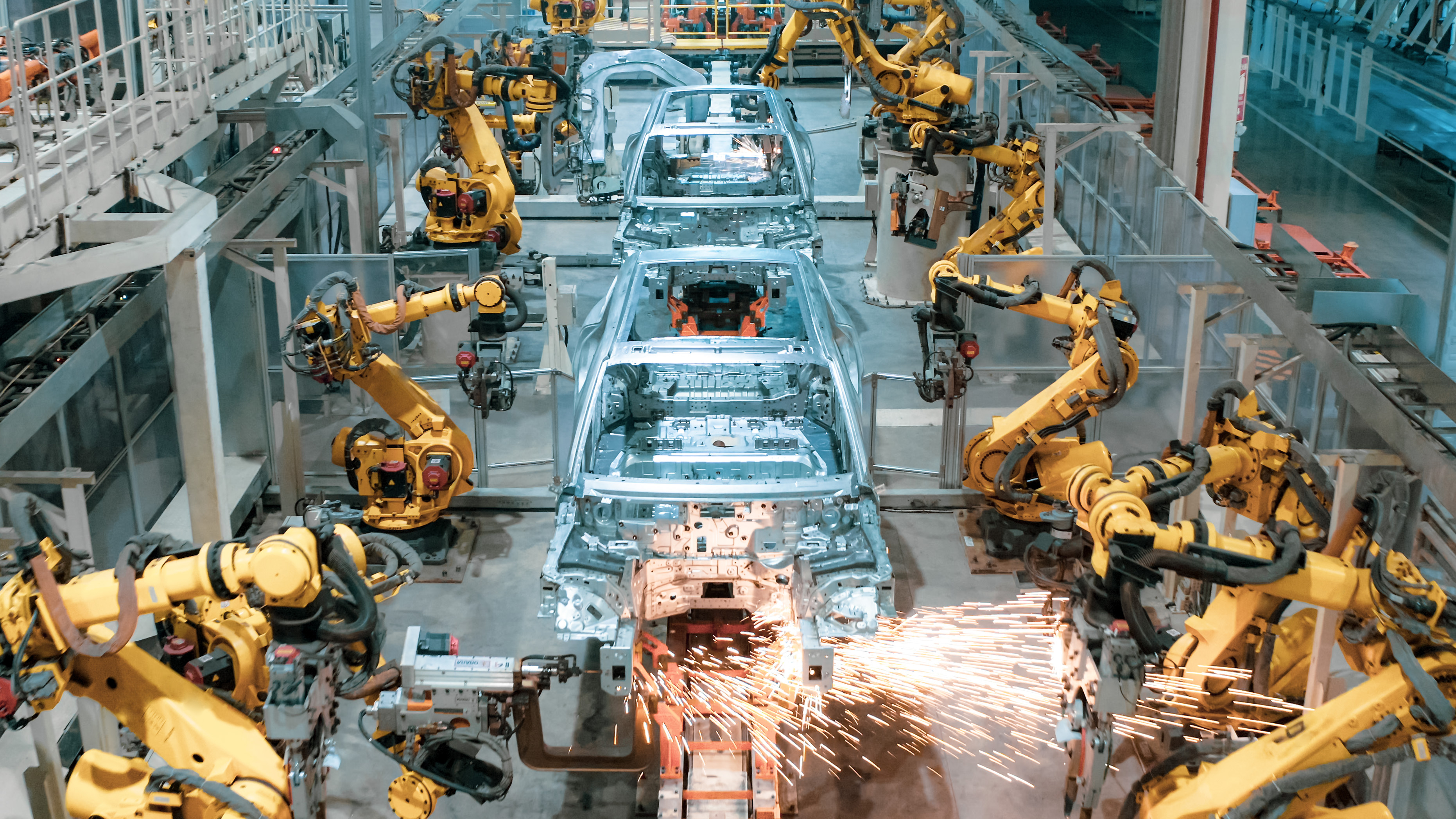
Thirdly, the painting workshop. Whether our vehicles can be painted in our favorite colors depends on this workshop’s skills. The painting workshop uses top-brand water-based paint materials for fully automated painting and laser perforation. The fully automated painting process can control dust particles to within 5 microns, not only making the body color very eye-catching but also having excellent scratch resistance and aging resistance. In the face of some minor scratches, the car paint can also have automatic repair function.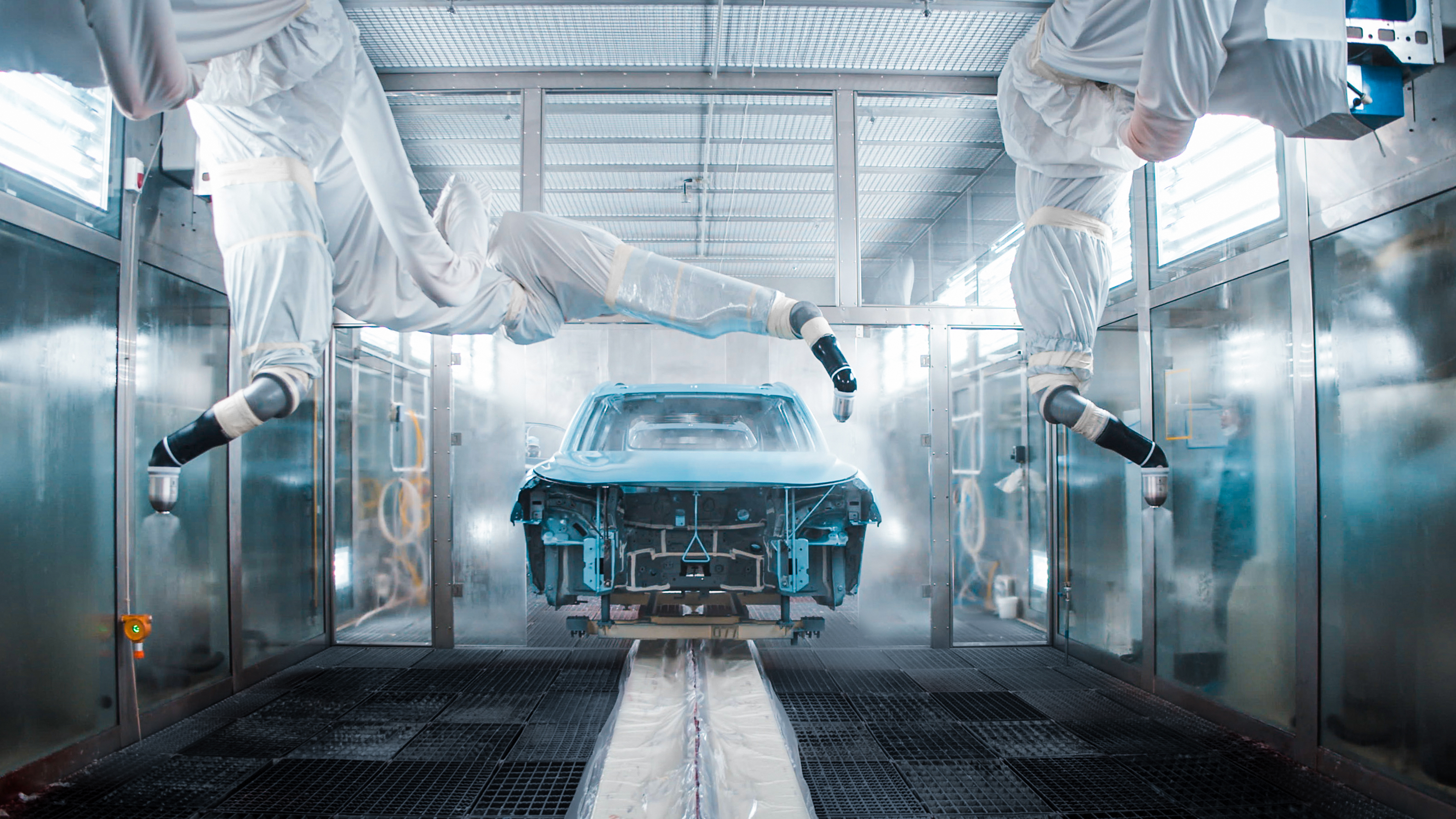
Lastly, let’s take a look at the most important final assembly workshop. Whether our cars can smoothly run off the production line depends on whether all the car parts are properly assembled at the final assembly workshop. The torque management system developed independently by Voyah is able to transmit different signals to Atlas torque tools, ensuring assembly stability and providing traceability of screw torque data for up to 10 years. With the rare air suspension inspection and all-round three-electricity monitoring in the industry, our vehicles successfully made it through the final assembly workshop. As the last process of car manufacturing, the vehicle data generated in Voyah’s final assembly workshop can be fully traceable when using the car later, including the whole vehicle software version, configurations, functions, and any abnormal or normal condition, all can be traced 100\%.
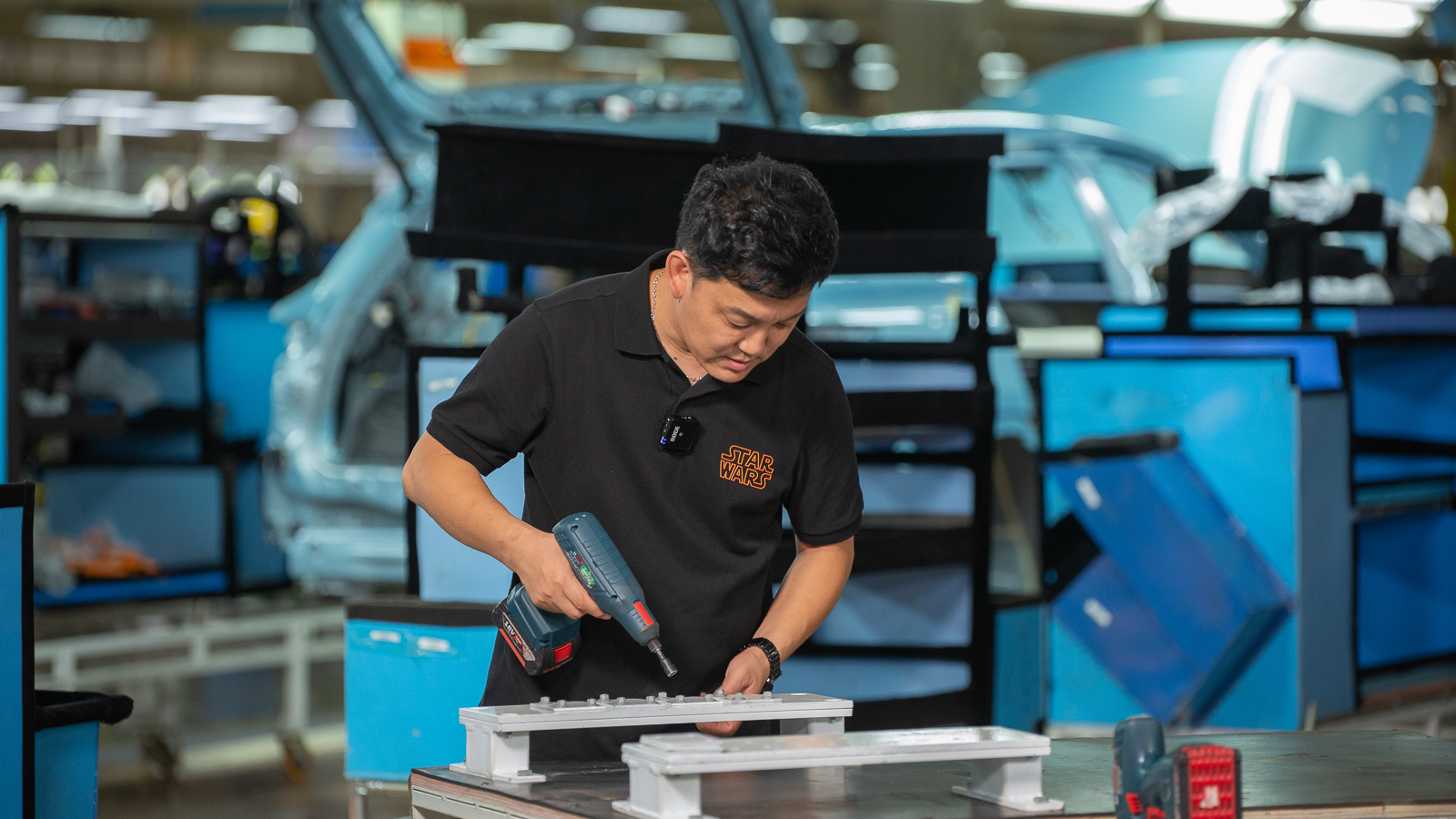 In the era of Industry 4.0, intelligence has become a word that cannot be separated from our lives. In the face of the automotive manufacturing industry, we can also see the significant impact of intelligent production. The modern industry has long been detached from the depressed, monotonous, and unregulated production process portrayed by Chaplin in “Modern Times”. More intelligent cars equipped with intelligent manufacturing processes can bring users a better usage experience.
In the era of Industry 4.0, intelligence has become a word that cannot be separated from our lives. In the face of the automotive manufacturing industry, we can also see the significant impact of intelligent production. The modern industry has long been detached from the depressed, monotonous, and unregulated production process portrayed by Chaplin in “Modern Times”. More intelligent cars equipped with intelligent manufacturing processes can bring users a better usage experience.
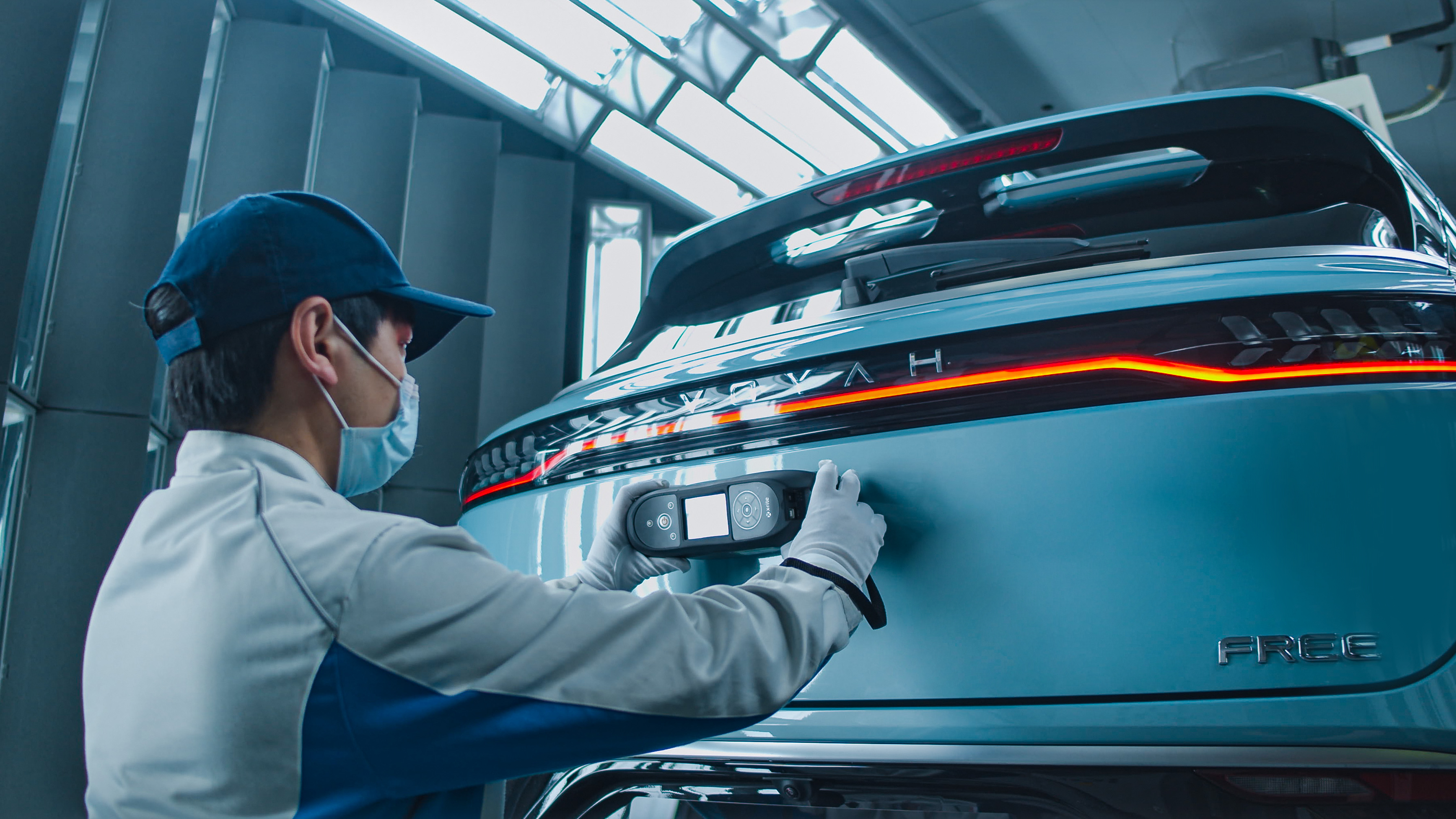
🔗Source: official website of Voyah
This article is a translation by ChatGPT of a Chinese report from 42HOW. If you have any questions about it, please email bd@42how.com.
